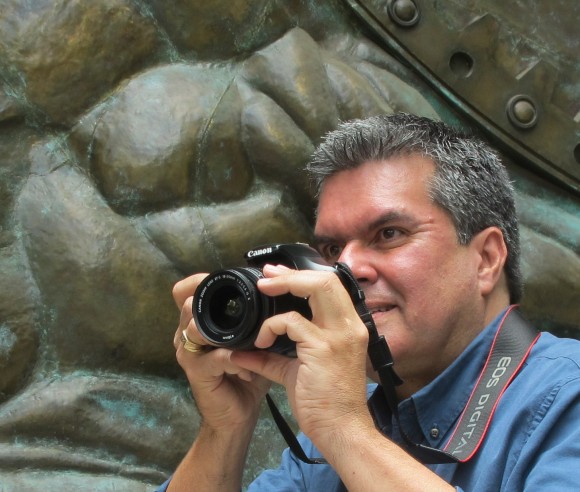Así, en dos platos, la nueva ley de Comisiones de Postulación establece que la eleccion de los presidentes de las Comisiones de Postulación se llevará a cabo por medio de sorteo público. Empero, la Constitución de la República indica que los rectores de las universidades, que integran aquellas comisiones, deben designar a un representante.
Martin Luther King Jr.
19
Jun 09
Postulaciones: ¿el "establishment" cierra filas?
21
Sep 08
Meditaciones de Martin Luther King Jr.
Comparto, con ustedes, estas meditaciones de Martin Luther King Jr., porque creo que son valiosas para la actualidad chapina.
Los textos son parte de una carta que el Reverendo les envió a sus colegas de Birmingham, Alabama, luego de una serie de marchas ocurridas en 1963, que aquellos criticaban.
No las traduzco porque Traduttore e traditore; y porque me gusta el estilo de King y no quiero estropearlo.
You deplore the demonstrations taking place in Birmingham. But your statement, I am sorry to say, fails to express a similar concern for the conditions that brought about the demonstrations. It is unfortunate that demonstrations are taking place in Birmingham, but it is even more unfortunate that the city’s white power structure left the Negro community with no alternative.
You may well ask: “Why direct action? Why sit ins, marches and so forth? Isn’t negotiation a better path?” You are quite right in calling for negotiation. Indeed, this is the very purpose of direct action. Nonviolent direct action seeks to create such a crisis and foster such a tension that a community which has constantly refused to negotiate is forced to confront the issue. It seeks so to dramatize the issue that it can no longer be ignored. My citing the creation of tension as part of the work of the nonviolent resister may sound rather shocking. But I must confess that I am not afraid of the word “tension”. I have earnestly opposed violent tension, but there is a type of constructive, nonviolent tension which is necessary for growth.
We have not made a single gain in civil rights without determined legal and nonviolent pressure.
We know through painful experience that freedom is never voluntarily given by the oppressor; it must be demanded by the oppressed.
I would agree with St. Augustine that “an unjust law is no law at all”.
Any law that uplifts human personality is just. Any law that degrades human personality is unjust.
There is nothing wrong in having an ordinance which requires a permit for a parade. But such an ordinance becomes unjust when it is used to deny citizens the First – Amendment privilege of peaceful assembly and protest.
Socrates practiced civil disobedience. In our own nation, the Boston Tea Party represented a massive act of civil disobedience.
Everything Adolf Hitler did in Germany was “legal” and everything the Hungarian freedom fighters did in Hungary was “illegal”.
Law and order exist for the purpose of establishing justice and that when they fail in this purpose they become the dangerously structured dams that block the flow of social progress. The present tension in the South is a necessary phase of the transition from an obnoxious negative peace, in which the Negro passively accepted his unjust plight, to a substantive and positive peace, in which all men will respect the dignity and worth of human personality. Actually, we who engage in nonviolent direct action are not the creators of tension. We merely bring to the surface the hidden tension that is already alive. We bring it out in the open, where it can be seen and dealt with.
I have tried to stand between these two forces, saying that we need emulate neither the “do nothingism” of the complacent nor the hatred and despair of the black nationalist. For there is the more excellent way of love and nonviolent protest.
As T.S. Eliot has said: “The last temptation is the greatest treason: To do the right deed for the wrong reason.”

